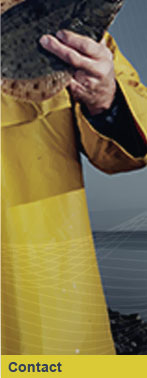South Asia
The Palk Bay, which connects north-eastern Sri Lanka and the central part of the Tamil Nadu coastline, constitutes a unique ecosystem. It is a shallow and circumscribed sea known for its biodiversity (Venkataraman 2004) and rich fishing grounds, and bordered on both sides by a long string of fishing settlements. This fishing population shares a language (Tamil) and a long history of interaction (Suryanarayan 2009). Several circumstances have, however, contributed to an intensification of conflict between fishers of both shores, which focuses on the use of sea territory and on fishing rights. First of all, the range and catching capacity of fishing vessels from India has increased dramatically since the 1970s. Based in new harbour sites such as Rameswaram and Mandapam, the trawling fleets of Tamil Nadu have a harvesting capacity far in excess of the ecological carrying capacity of the Indian section of the Palk Bay (Sathyapalan et al. 2008; Vijayan 1999). The civil war in Sri Lanka has provided them with opportunities to transgress the international boundary line and harvest the stocks in Sri Lankan waters which, due to the decline of local fishing effort, were in far better condition. These transgressions have, however, brought Indian trawler fishers into regular conflict with the Sri Lankan and Indian navies, thereby generating political dust on both sides. The return of Sri Lankan fishers to the shores of the Palk Bay has added a new dimension. Precluded by Sri Lankan policy on the use of trawl technology, these fishers complain bitterly about the intrusion of the Indian trawlers, which damage their gears and catch ‘their’ fish.
A variety of parties at different levels has become involved in the resolution of conflicts, which – also because of national security dimensions – have proven to be quite intransigent. Fisher NGOs/movements in Tamil Nadu and Sri Lanka jointly initiated one of the most promising of these efforts in 2004 (Vivekanandan 2004). Taking representatives of the Indian trawler fishers to Sri Lanka for a series of meetings with Sri Lankan fishers, it strove to increase mutual understanding and willingness to arrive at a negotiated, fair and sustainable arrangement. The present project builds upon these earlier efforts. As many of the fishers on both sides of the Palk Bay are Catholic, the Church and related organizations potentially also have a role to play in the negotiation process. Observers agree that a negotiated and sustainable solution will necessarily include the downsizing of the trawler fleet on the Indian shores of the Palk Bay (Sathyapalan et al. 2008).

Centre for Maritime Research
Plantage Muidergracht 14-16
NL-1018 TV Amsterdam
Phone: +31 20 5254185
Fax: +31 20 5254051
Contact Form
